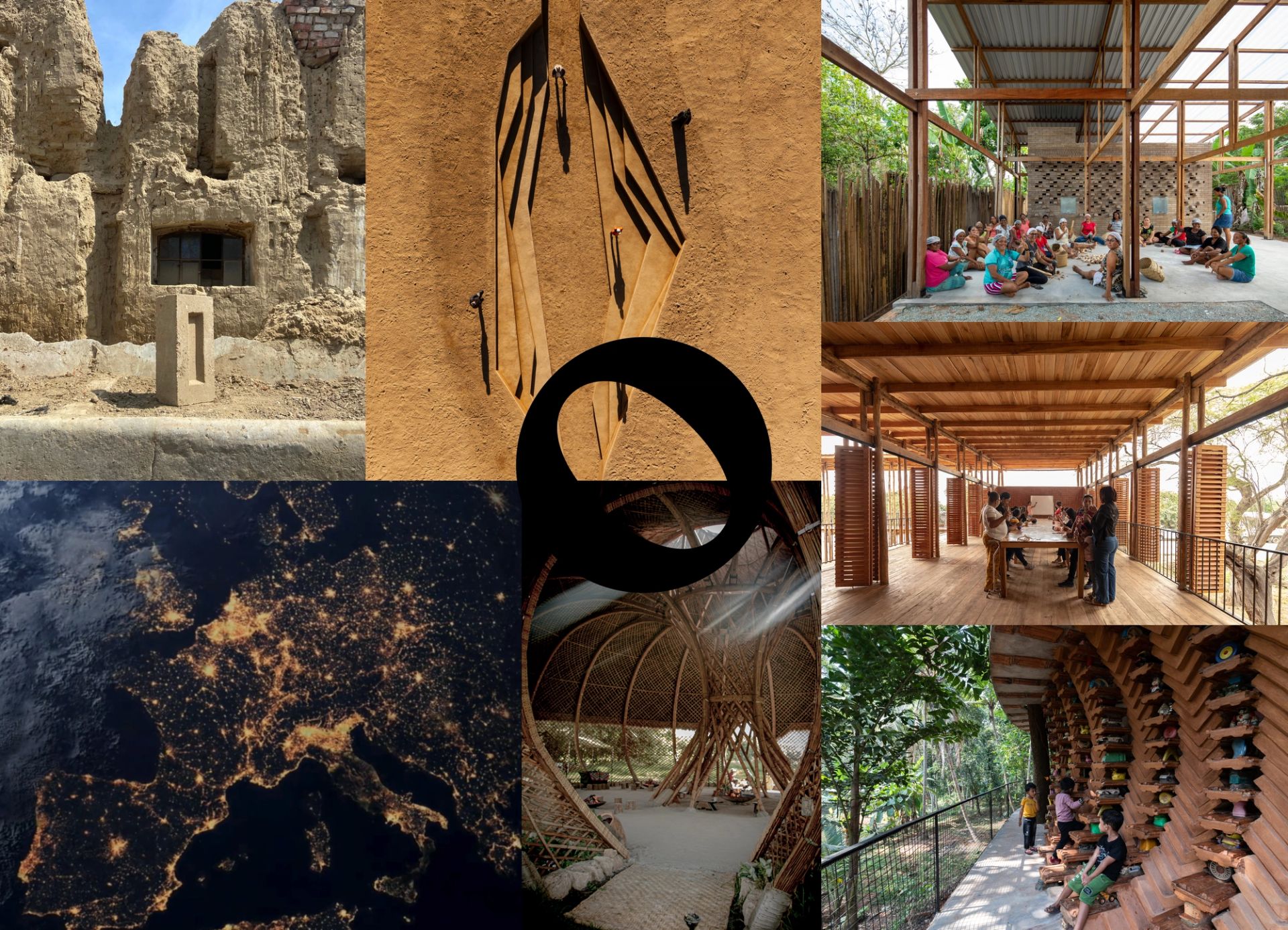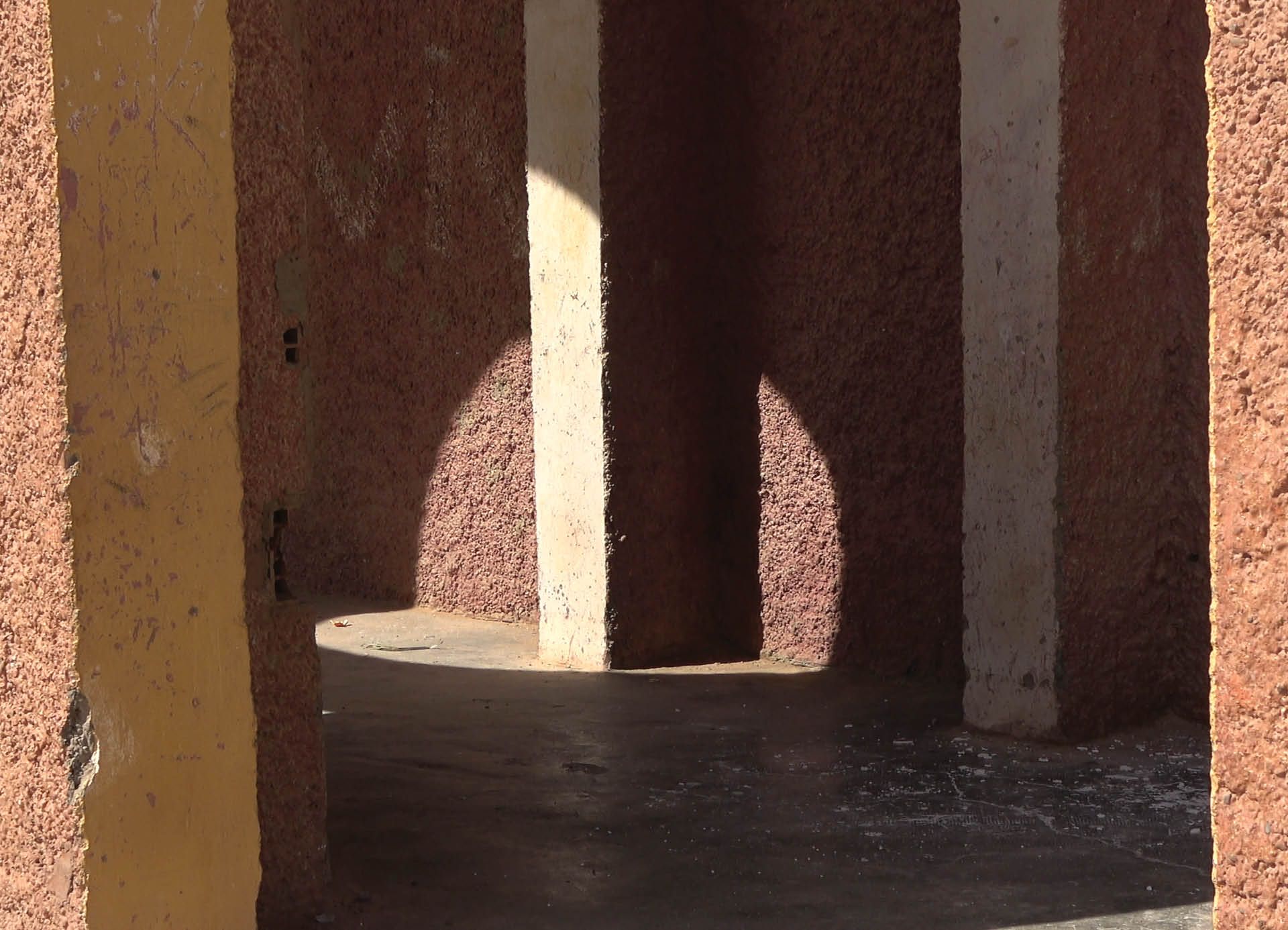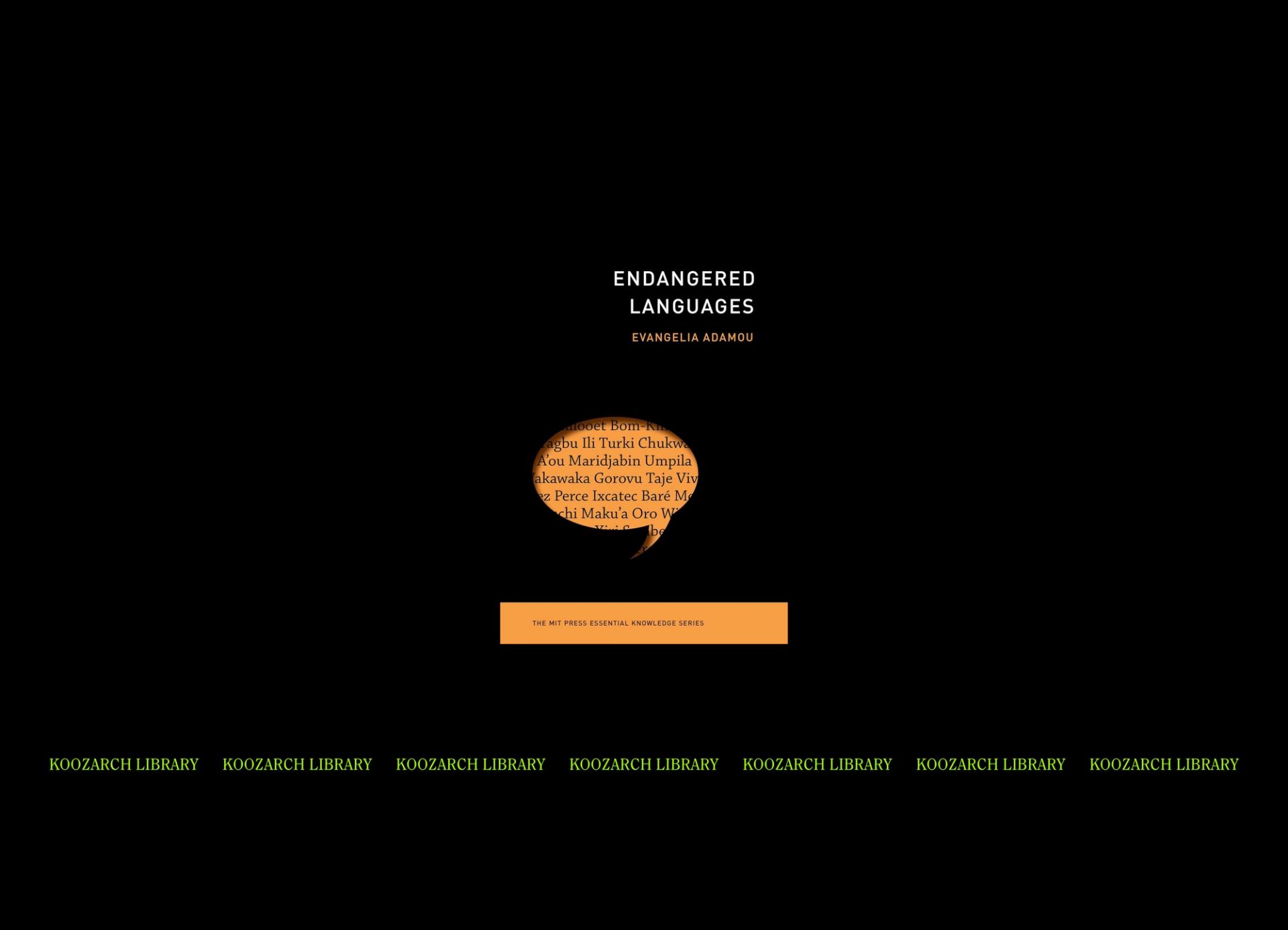Just over a year ago — against a backdrop of attacks and counter-offensives in the Russo-Ukrainian war, the murder of Mahsa Amini, and devastating floods in both Pakistan and Chad, among myriad other news-items — the Urban Studies department at the University of Basel launched a call for designers to think about the notion of planetary futures, with a specific focus on the agency of the (contentiously named) global south. Twelve months later, the lecture series South Designs: Planetary Futures presents their research. We catch up with curators Kenny Cupers and Laura Nkula-Wenz.
KOOZ During our very last conversation, we discussed global call for projects “South Designs” which prompted a number of conversations addressing the question of how the “South” designs planetary futures — a question that the six selected groups have been exploring in their respective researches. One year, another debatable iteration of COP and numerous climate catastrophes later, could you reflect on what prompted the conversation series?
KENNY CUPERS First of all, we wanted to provide a platform for the groups to present their research, in conversation with our “critical friends”, as well as a space to theorise from their practice. As you rightly note though, the conversation series was also prompted by urgency in the face of ongoing planetary crisis. And yet, the projects also grapple with more long-standing issues of epistemic and material inequities, so they should not be seen as solely responding to a “new” crisis or urgency. We see them as part of a bigger knowledge project that tries to centre praxis as a form of theorising and thus contribute, in a small way, to reducing inherited hierarchies.
"We see them as part of a bigger knowledge project that tries to centre praxis as a form of theorising and thus contribute, in a small way, to reducing inherited hierarchies."
- Kenny Cupers
LAURA NKULA WENZ We think it is a good moment to give the projects more visibility. After all, most of the groups have now been working for about a year and have things to share: what they have experimented with, what their thought-and-practice process looked like etc. In terms of unsettling conventional knowledge hierarchies, we believe that the composition of the first roundtable personified this mission: Michael Uwemedimo, Jennifer Gabrys and Paulo Tavares are all individuals who are thinking and acting across and between academia and activism, theory and policy, imaginaries and materialities. in order to address specific problems.
KOOZ In the same interview, you mentioned that design has increasingly popped up as “as an alternative to political decision-making, a way of thinking and doing that promises to solve complex problems by synthesising forms of knowledge, technical procedures, and aesthetic practices”. In the opening conversation of the series, Jennifer Gabrys draws our attention to the problems associated with the very term of design as directly implying the creation of a finished object whilst Paulo Tavares talks about design as advocacy and how the more sustainable city is indeed the just city. How does the conversation series approach the term of design as more of a verb rather than a noun?
LNW So I’d say that, out of the three terms that make up the title of the series — the planetary, the South, and design — design appears to be the most slippery one, in terms of the politics surrounding it. The discussion certainly solidified a hunch that has also undergirded the larger ‘Governing Through Design’ project, in that design seems very hard to define a priori. Our focus and that of the six projects presented in this series is certainly more on designing as a verb and process, rather than design as a product. At the same time, we cannot deny that the materiality of many designs is what makes design a powerful signifier in social and political debates. So rather than offering an authoritative definition of design, we want to highlight different ways of doing and thinking with and through it. This also informed our choice of the diverse voices we will engage in the next months.
"Our focus and that of the six projects presented in this series is certainly more on designing as a verb and process, rather than design as a product."
- Laura Nkula-Wenz
KC I agree that our project is about shifting from design as a noun — and designer as a professional subject — to the act of designing, thus also unsettling the idea that it is always the designer who does the designing. This is one way to democratise an elite field; it also resonates with Gautam Bhan’s ideas about Southern urban practice, where ‘particular modes of practice cannot be neatly mapped onto particular kinds of practitioners’. We are very fortunate that Gautam is also one of our scientific committee members who has been guiding us in this project.
KOOZ With the aim of shifting from a top-down approach to one that is more finely tuned to the non-human agents which shape our environment, Paulo Tavares introduces the proposition of “from planning to planting” whilst also recognising that “the ecological crisis is not only a question of environmental repair, but foremost a question of historical reparation.” Planting as a concept and form of design that tries to displace the imperial power of anthropocentrism yet planting itself was indeed a form of colonial violence and an ecological design which sought to displace and appropriate. Can we indeed plant our way out of the anthropocentric bubble and decolonial practices? To what extent can we look to planting as a form of advocacy?
KC [chuckles] This is a question best posed to Paulo Tavares himself. But I’ll attempt a response: The idea to pursue planting as a form of planetary, place-based repair is a wonderful provocation, something we will come back to and invoke in some of our future discussions. And at the same time, as Paulo also acknowledged, we need to be careful in foregrounding who we are planting with so that planting does not end up replicating hierarchies of knowledge and expertise that we know from planning practice. In that sense, I think it is important for practitioners to consider the infrastructures, communities, and “fields” that their practice engages with, and how their work can actively distribute resources and visibility to marginalised communities.
LNW Tavares’ idea of repair as reparation certainly resonates with the vocabulary that is currently percolating in Southern theory and knowledge practices. So we will definitely take those up again over the course of the next events, actually already in the next conversation (to be held on October 24 2023) between Nana Yaa Biamah Ofosu and the project team that has worked around housing occupations as a praxis of Southern design.
"While we have to acknowledge that the ideas of design and the South certainly have colonial origins and logics, there is still an openness to the term and a certain dimension of pragmatism with which it is used and (re-)claimed."
- Kenny Cupers
KOOZ Going back to etymology and politics, all three participants to the first conversations series, which also included Michael Uwemedimo, touched upon the term “Global South” and the violence inherent in this terminology, its strategically and perniciously deployed by politicians, economists and so forth. How does the conversation series approach this term? Can design and designers rid it of its pernicious connotations?
KC I am not sure whether the panellists actually implied that the term ‘global South’ was inherently violent. While we have to acknowledge that the ideas of design and the South certainly have colonial origins and logics, there is still an openness to the term and a certain dimension of pragmatism with which it is used and (re-)claimed. The way in which Michael Owumedimo for example uses the term resonates with Spivak’s ‘strategic essentialism’, i.e. a political tactic to mobilise people and resources.
LNW The South is certainly not an easy position to occupy and not without its contradictions. We know that it is produced through relations of planetary exploitation and extractivism; I do not think it is within any designer's ambition to expunge this connotation. Further, I actually do not think this would be productive. It is more about recognising these ‘pernicious connotations’ as you call them, and working with an ethos that grapples with them and — in the best case scenario — challenges them within their local permutations. Because what we heard from all three speakers was that geography continues to matter, as does subjectivity and positionality. And yet, this does not mean that everybody works in their neat little silos; rather what we heard was that it provides an opportunity for new planetary solidarities to emerge.
KOOZ From global south to the wordplanetary: Jennifer Gabrys cites both Spivak’s Imperative to Re-Imagine the Planet and Sylvia Wynter to unravel how the term planetary is not a fixed backdrop but rather a word which invites us to rethink who and what counts as human. How does the conversation series operate between the local and the planetary? What is the potential of working in between and across these scales?
KC I would start by saying that the planetary has been conflated with the global in much of the work we are familiar with in urban studies, which erases more nuanced traditions of thinking about the former term. This is a point that Jennifer Gabrys made powerfully with her reference to the work of Sylvia Wynter, who in turn has shown that the planetary is not the same as the global, it is not merely a scale. Or Dipesh Chakrabarty, who also makes very useful distinctions between the global and the planetary. He says that something along the lines of capitalist globalisation being ‘a view from nowhere’, while the planetary is always situated, and at once intimately connected to the body and entangled across sites and places. So it is not, first and foremost, a matter of identifying the planetary with a particular scale. Maybe as an important aside, this question that is often posed in design practice, whether something is ‘scalable’ also tends to fall into the trap of universal knowledge claims — even if the underlying question, that of real transformation versus symbolic performance, remains foundational.
LNW Yes, I agree that the idea of the planetary is often very much misunderstood. Just as some people think the global South has simply replaced the ‘Third World’ as a popular moniker to describe a reductionist geographical imagination. So what we are trying to do in curating this conversation series is to give practical nuance to these concepts, spell them out, show the situatedness of the planetary, and engage with plenary futures through the particular places that the South Design projects are working in, from and through.
"We also need to consider both academic and cultural institutions quite broadly here, not just the brick and mortar, formal institutions but also other places where learning and cultural development take place."
- Laura Nkula-Wenz
KOOZ Beyond the virtualised “Zoom-space” of this series, what space can academic and cultural institutions offer as sites where to test and expand new dictionaries?
KC New dictionaries are certainly important — we know that words move the world — but I would say that it is not just about that. It is also an opportunity to think about new practices and ways of doing and making. At the University of Basel, this commitment to practise and/as theory is also what informs the curriculum of our Masters in Critical Urbanisms.
LNW I think we also need to consider both academic and cultural institutions quite broadly here, not just the brick and mortar, formal institutions but also other places where learning and cultural development take place. But we also want to stay humble and realistic, because we know that many academic spaces, such as universities or cultural institutions are inherently conservative. So what we are attempting is to carve out spaces where some of these conservative institutional logics are suspended, even just momentarily.
Watch the registration of the Opening Roundtable Discussion with Jennifer Gabrys, Paulo Tavares, and Michael Uwemedimo. The conversation took place online on Tuesday, 26th September, 2023, and was moderated by Kenny Cupers (Urban Studies, University of Basel).
Bio
Laura Nkula-Wenz is a lecturer and student affairs coordinator for the MA in Critical Urbanisms, University of Basel, as well as a Postdoctoral Research Fellow on the SNSF-funded ‘Governing Through Design’ project, where she co-leads the South Designs initiative together with Prof. Kenny Cupers. She is a human geographer by training with a passion for postcolonial urban theory, African urbanism, new pedagogies of the city and public culture. Her research has focused on local urban governance transformation, the impact of international events and urban accolades, on urban experimentation and interurban knowledge networks, the nexus of cultural production and urban change, as well as the role of professional integrity in the urban development sector.
Kenny Cupers co-founded and leads the Critical Urbanisms program at the University of Basel. He is committed to the development of the urban humanities through collaborative pedagogy and public-facing research at the intersection of architectural history, urban studies, and critical geography. He has published widely on mass housing, architectural modernism, and planning history. Grounded in primary research, his scholarship analyses spaces and landscapes in order to answer questions about power and historical change. Cupers leads the SNF-funded project, How Infrastructure Shaped Territory in Africa, and co-directs (with Orit Halpern and Claudia Mareis) the Sinergia project Governing through Design: An Interdisciplinary Phenomenon. Cupers received his Ph.D. in architectural and urban history from Harvard University in 2010.
Federica Zambeletti is the founder and managing director of KoozArch. She is an architect, researcher and digital curator whose interests lie at the intersection between art, architecture and regenerative practices. In 2015 Federica founded KoozArch with the ambition of creating a space where to research, explore and discuss architecture beyond the limits of its built form. Parallel to her work at KoozArch, Federica is Architect at the architecture studio UNA and researcher at the non-profit agency for change UNLESS where she is project manager of the research "Antarctic Resolution". Federica is an Architectural Association School of Architecture in London alumni.





